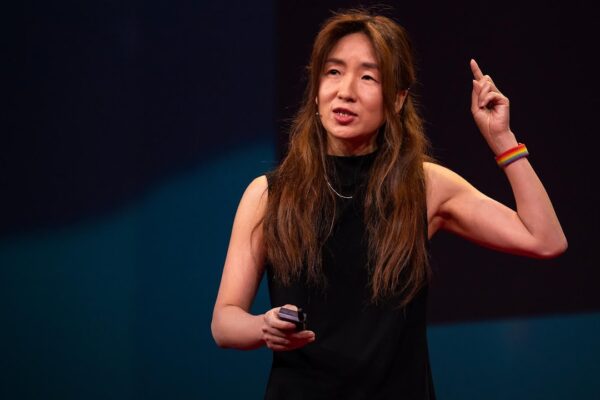As we navigate the rapidly evolving landscape of artificial intelligence (AI), it’s essential to understand the current state of massive AI systems like ChatGPT. Computer scientist Yejin Choi sheds light on three key problems with cutting-edge large language models, highlighting their limitations and potential pitfalls.
The Rise of Large Language Models
Large language models have revolutionized the field of natural language processing (NLP), enabling machines to understand and generate human-like text with unprecedented accuracy. These models have been trained on vast amounts of data, allowing them to learn complex patterns and relationships within language. However, as Yejin Choi notes, there are significant challenges associated with these massive AI systems.
Problem 1: Commonsense Reasoning
One of the most critical issues facing large language models is their inability to demonstrate basic commonsense reasoning. In a humorous example, Yejin Choi shares a conversation where ChatGPT fails to understand that "a cat cannot be a king." This simple concept, which humans take for granted, proves to be a significant hurdle for AI systems.
Despite advances in NLP, large language models still struggle with:
- Lack of common sense: They often fail to grasp basic facts and concepts, demonstrating an incomplete understanding of the world.
- Inability to reason abstractly: These models are limited in their capacity to think abstractly, leading to oversimplification or misinterpretation of complex ideas.
Problem 2: Dependence on Data Quality
Large language models rely heavily on high-quality training data. However, as Yejin Choi notes, this reliance on data quality poses several challenges:
- Biases in data: If the training data contains biases, these will be reflected in the model’s performance and potentially lead to discriminatory outcomes.
- Limited domain knowledge: Models trained on specific domains may lack the ability to generalize to other areas, limiting their applicability.
Problem 3: Lack of Interpretability
Another significant concern with large language models is their lack of interpretability. Yejin Choi highlights the difficulty in understanding how these complex systems arrive at their conclusions:
- Black box decision-making: The internal workings of large language models are often opaque, making it challenging to identify errors or biases.
- Limited explainability: These models fail to provide clear explanations for their decisions, hindering our ability to trust and use them effectively.
A New Era in AI: Smaller Systems with Human Values
While massive AI systems like ChatGPT have made significant strides in NLP, Yejin Choi advocates for a shift towards smaller AI systems trained on human norms and values. This approach offers several benefits:
- Improved interpretability: Smaller models are more transparent and easier to understand, reducing the risk of errors or biases.
- Enhanced explainability: These models provide clear explanations for their decisions, increasing trust and usability.
- Better alignment with human values: By incorporating human norms and values into AI systems, we can ensure that these technologies align with our moral principles.
Q&A with Chris Anderson
In a discussion following Yejin Choi’s talk, Chris Anderson, the head of TED, explores the implications of this new era in AI:
- What does this mean for our understanding of intelligence?: According to Yejin Choi, we’re witnessing the emergence of a new intellectual species – one that blends human and machine capabilities.
- How can we ensure these smaller systems are effective?: By focusing on interpretability and explainability, we can build trust in AI technologies and unlock their full potential.
Conclusion
As we navigate the complexities of massive artificial intelligence systems like ChatGPT, it’s essential to acknowledge the limitations and challenges associated with these cutting-edge technologies. By recognizing the importance of smaller AI systems trained on human norms and values, we can create a more trustworthy, transparent, and effective approach to AI development.
Learn More
- Join the conversation: Explore the world of AI and NLP through TED Talks, podcasts, and online courses.
- Stay up-to-date: Follow Yejin Choi’s work on large language models and their implications for society.
- Become a TED Member: Support our mission to spread ideas and access exclusive content.
Watch More
- Explore the entire library of TED Talks: Visit ted.com to discover talks, performances, and original series from leading thinkers and doers.
- Subscribe to the TED Talks channel: Get notified about new videos on Technology, Entertainment, Design, science, business, global issues, and more.







